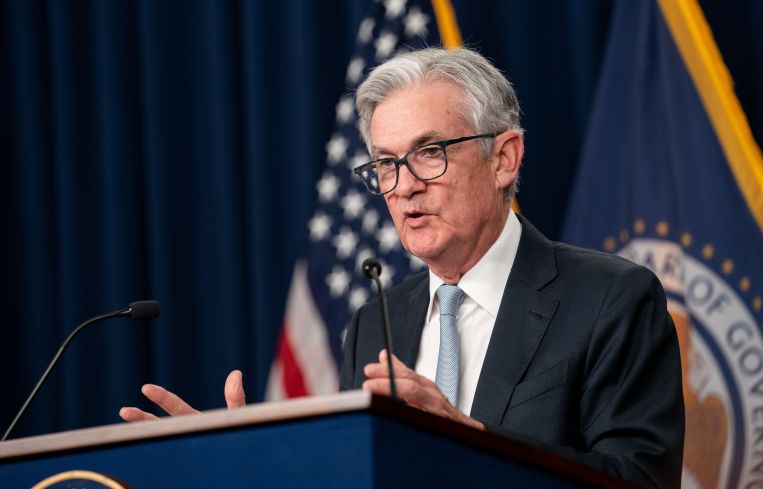Fed Closes 2022 With Seventh Rate Hike Leaving CRE in Limbo for 2023
By Andrew Coen December 14, 2022 3:16 pm
reprints
Commercial real estate financiers and borrowers alike remain in flux after the Federal Reserve closed its 2022 calendar with the year’s seventh interest rate hike, and no clear sign of the hikes letting up in early 2023.
The central bank announced a 50 basis point (bp) hike Wednesday afternoon, placing the federal funds rate between 4.25 percent to 4.5 percent — its highest level since December 2007 and a stark contrast to near-zero short-term borrowing conditions that existed in early 2022. While the Fed ended its streak of four consecutive 75 bp increases, it indicated in its statement following the meeting that rates will continue to climb into 2023 in an effort to combat inflationary pressures.
“This continues to exert headwinds to transaction activity well into 2023,” Sam Chandan, director of New York University’s Chen Institute for Global Real Estate Finance, told Commercial Observer. “We are early in the cycle of price adjustments, and for some property types the bid-ask spread between buyers and sellers, the data suggests, is still significant, and so I think we’ll continue to see subdued activity or drags on investment sales.”
The rising interest rate environment has been a reality for CRE since the Fed implemented its first jumbo rate hike since 1994 on June 15. Since then, market participants have been working overtime to bring deals across the finish line.
Chandan noted that — based on past cycles with inflationary pressure — investment sales activity could bounce back under new price adjustments by mid-2023. Yet he cautioned that debt scheduled to mature next year will remain a major concern for the CRE market since it will have to be refinanced at significantly higher rates. Chandan does not see the levels of distress that occurred during the 2008 Great Financial Crisis, however, and expects market participants to seek out flexible terms on deals to avoid defaults instead.
Evan Denner, executive vice president and head of business at Marcus & Millichap Capital Corporation, said he has held numerous meetings on weekends on individual transactions to help bring them to a close. A number of “outside the box” approaches have been implemented by his team to execute deals, such as raising additional equity or going with partial recourse on certain loans.
“It’s a conversation we’re having multiple times a week right now with lenders,” Denner said. “We’re communicating with our clients not only around their transaction, but also what’s happening in the market, and we’re going through a lot of what-if scenarios.”
The Fed’s rate 50 bp rate hike came a day after the consumer price index reading for November came in at 0.1 percent, a sign that perhaps inflation may have peaked. Fed Chair Jerome Powell stressed at his press conference Wednesday afternoon though that recent inflation strides are not sufficient enough to discontinue rate hikes in the near future saying “it will take substantially more evidence to give confidence that inflation is on a sustained downward path” and estimates it to be 5.1 percent in late 2023.
Kelly Kulak, a partner in the real estate department of law firm at Schwartz Sladkus Reich Greenberg Atlas in Manhattan, said she has helped facilitate multiple deals since the summer where borrowers sought loan modifications in which the loan’s term would be extended two years with their existing lender instead of eyeing a new refinance. She is currently working on another refinancing, slated to close by the end of 2022, for a Manhattan office property where the borrower is securing a two-year, fixed-rate loan to account for the possibility of rates continuing to spike.
Kulak stressed that to get any deal closed these days requires some giveback from sponsors.
“Everybody likes nonrecourse loans, but sometimes you do have to give a little bit of a guarantee, especially if it’s a construction loan,” Kulak said. “You’re definitely going to have to give a completion guarantee and maybe sometimes even a small payment guarantee to get the loan to the finish line and make it attractive to the credit committee at the bank because they’re not going to approve it if there’s too much risk involved.”
Andrew Coen can be reached at acoen@commercialobserver.com.



